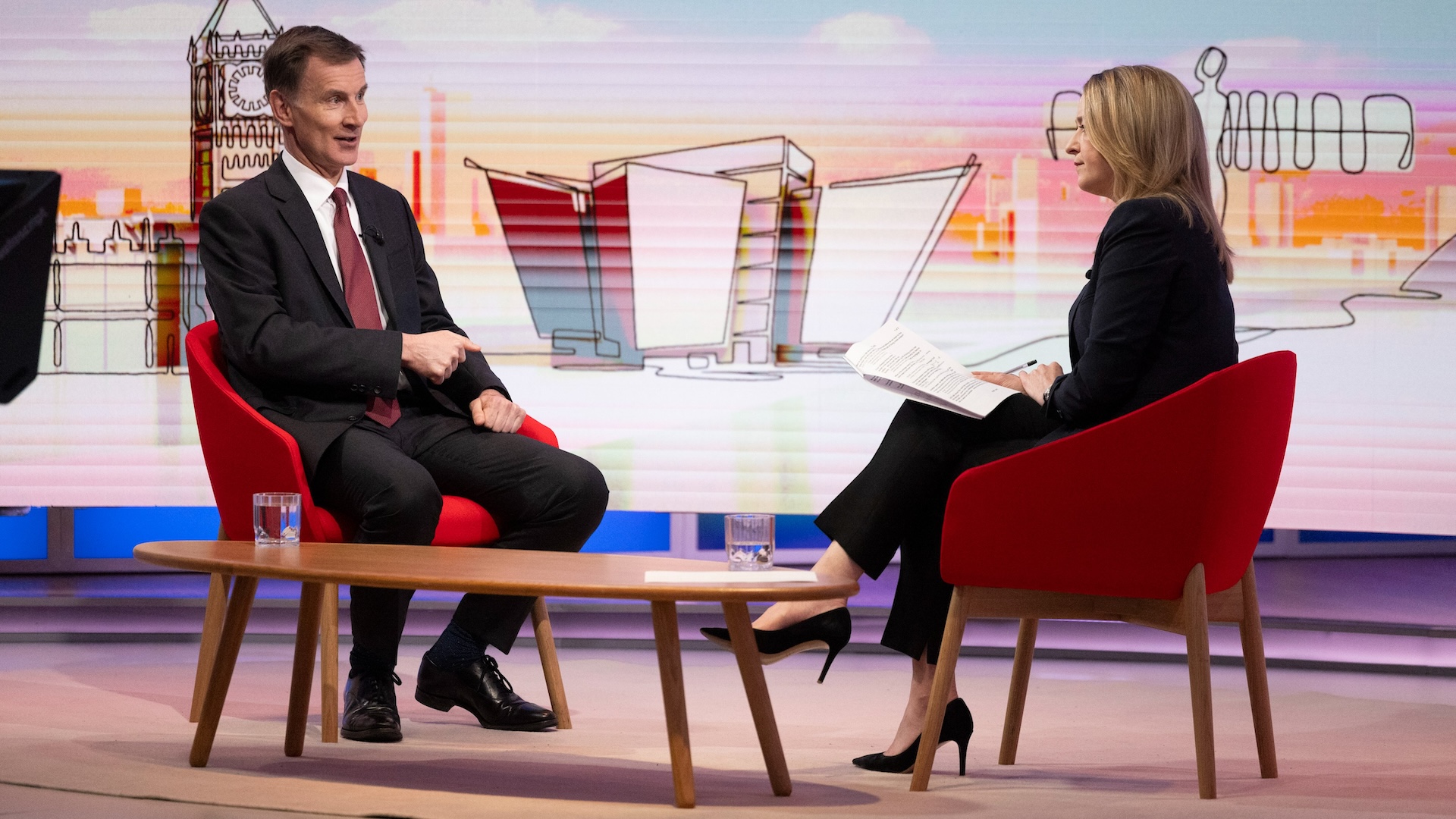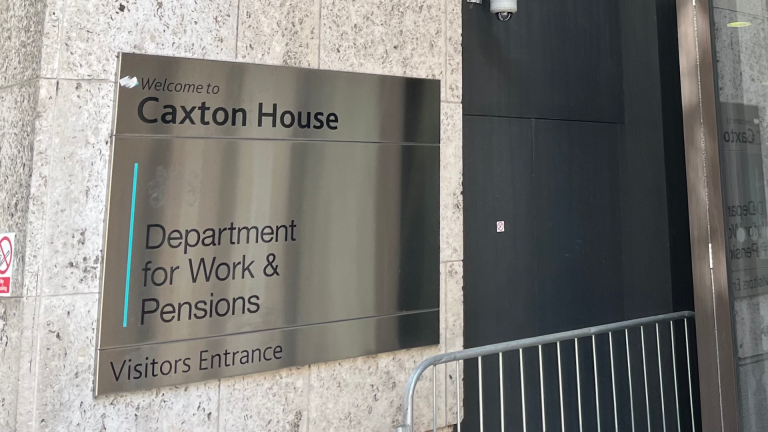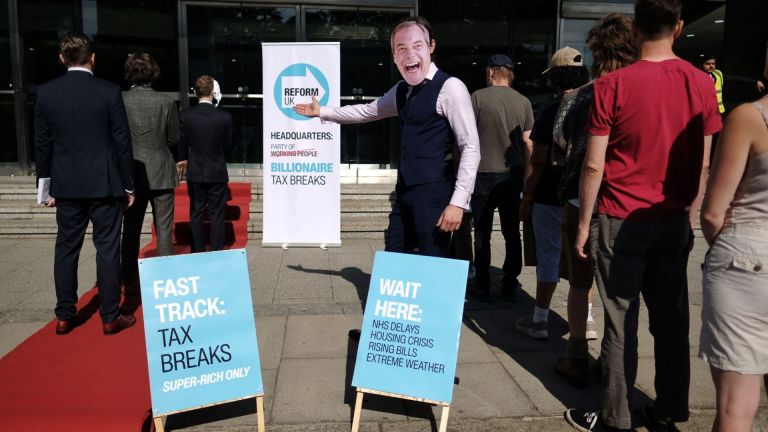The Office for Budget Responsibility (OBR) has said that benefit sanctions have led to more people claiming disability benefits, as the Big Issue has reported. There is evidence that a “punitive” benefits system can exacerbate people’s physical and mental health conditions, pushing people further away from work.
Helen Barnard, the director of policy, research and impact at the Trussell Trust, said on X: “Many on universal credit can’t afford to eat properly. Millions forced into debt, cut off from family and made iller because they can’t afford essentials. How big a stick does the chancellor need? The stick’s so big it’s just injuring people. The carrots so small they stay hungry.”
Benefits are set to be uprated in April, but the Joseph Rowntree Foundation and Trussell Trust have found that universal credit will still fall short by £30 each week of the amount people need to survive. The charities have called for the government to introduce an ‘essentials guarantee’ to ensure claimants that they will be given enough money to afford the basic essentials like food and heating.
The work and pensions select committee has similarly called for a new benchmark for benefit levels, such as the essentials guarantee, and a commitment to uprating benefits in line with inflation. No party has committed to such a policy, with most talk around the welfare system focused on driving people into work rather than ensuring that benefits are enough for people to live.
Asked by Kuenssberg whether it will become harder to claim benefits, Hunt said: “That’s what Mel Stride has said. If people are out of work for more than 18 months, he will require them to do a work placement. Changes in the work capability assessment that he’s already announced mean that 400,000 fewer people will be getting the higher level of benefit.”
The Big Issue has previously reported that around 230,000 people with mobility problems preventing them from working will not get any extra universal credit by 2029, according to figures from the Office for Budget Responsibility (OBR) requested by anti-poverty charity Z2K.
Advertising helps fund Big Issue’s mission to end poverty
A further 141,000 people with mental health conditions will miss out by 2029. Z2K has warned this could put them and others around them at “substantial risk of harm” if they are forced to meet conditions set by Jobcentre staff.
Hunt’s comments came in the same week as new annual poverty statistics revealed that 4.3 million children are now living in poverty.
Responding to Hunt on Sunday with Laura Kuenssberg, satirist Armando Iannuci, who is also a patron of the Child Poverty Action Group, said: “It’s almost like we’re in a Dickens novel rather than the sixth biggest economy in the world.”
He added “It was hard to hear him use the phrase carrot and stick, because the implication that you need a stick to beat those on welfare or you need a stick to beat those in poverty.
“Lay aside all the emotional and psychological impacts of poverty has on children, the shame, the embarrassment, the fact that kids are going to school pretending they have a packed lunch when they don’t have anything, not having had any breakfast and therefore going to school tired and stressed, lay aside all of that, it actually helps the economy having fewer people in poverty.
“It has the hugest impact on our other services: education, children’s services, health, the legal system. At the moment, we’re coming up with policies that are putting more people into poverty and therefore having a greater impact and detriment to the economy because of it.”
Advertising helps fund Big Issue’s mission to end poverty
Posting on X, a disability activist who goes by the name of Ben Claimant welcomed Iannuci’s “excellent response” and said it is “what we really need to hear from the opposition”.
Kendall did, however, outline further plans for the welfare system in the Sunday Times. She has previously said there will be “no options for a life on benefits” under a Labour government when discussing proposals to drive young people into work and education, prompting fears that the party would take a similar approach of potentially pushing people into unsuitable work.
But Kendall acknowledged that the government will fail to boost employment if it cannot bring down levels of long-term sickness and seemed to suggest Labour will take a more “supportive” approach. She said Jobcentres will partner with the NHS to get people into work.
Kendall said: “We have a benefit system which is not supportive, it’s not geared around supporting people into work, and too often people are written off when they could, with the right help and support, get back into work. And what you have to do is have a system which gives people the confidence to take the plunge.
“I do not want Jobcentres to be places of fear. I want Jobcentres to be places where you can go to get the support you need to get work, where businesses want to come because they get the best possible people.
“But what I don’t want is to have a situation where work coaches are spending all their time assessing and monitoring people, not giving them the opportunities they need… Quite frankly, sending off 50 CVs when you haven’t got what you need, rather than 10, isn’t going to make any difference.”
Advertising helps fund Big Issue’s mission to end poverty
Tom Pollard, the head of social policy at the New Economics Foundation (NEF), responded to this on X: “There are still a lot of question marks over Labour’s plans for benefits and employment support, but there is at least some welcome messaging here from Liz Kendall, echoing NEF’s call for a shift from focusing on compliance to fostering genuine engagement.”
Do you have a story to tell or opinions to share about this? We want to hear from you. Get in touch and tell us more.










